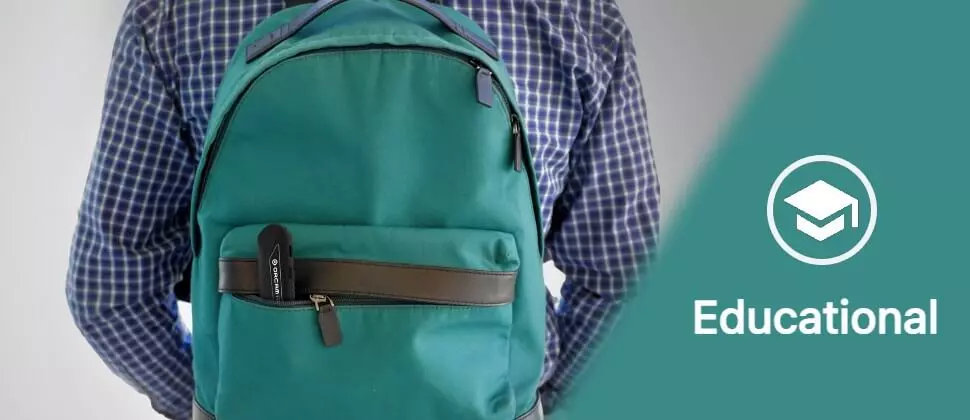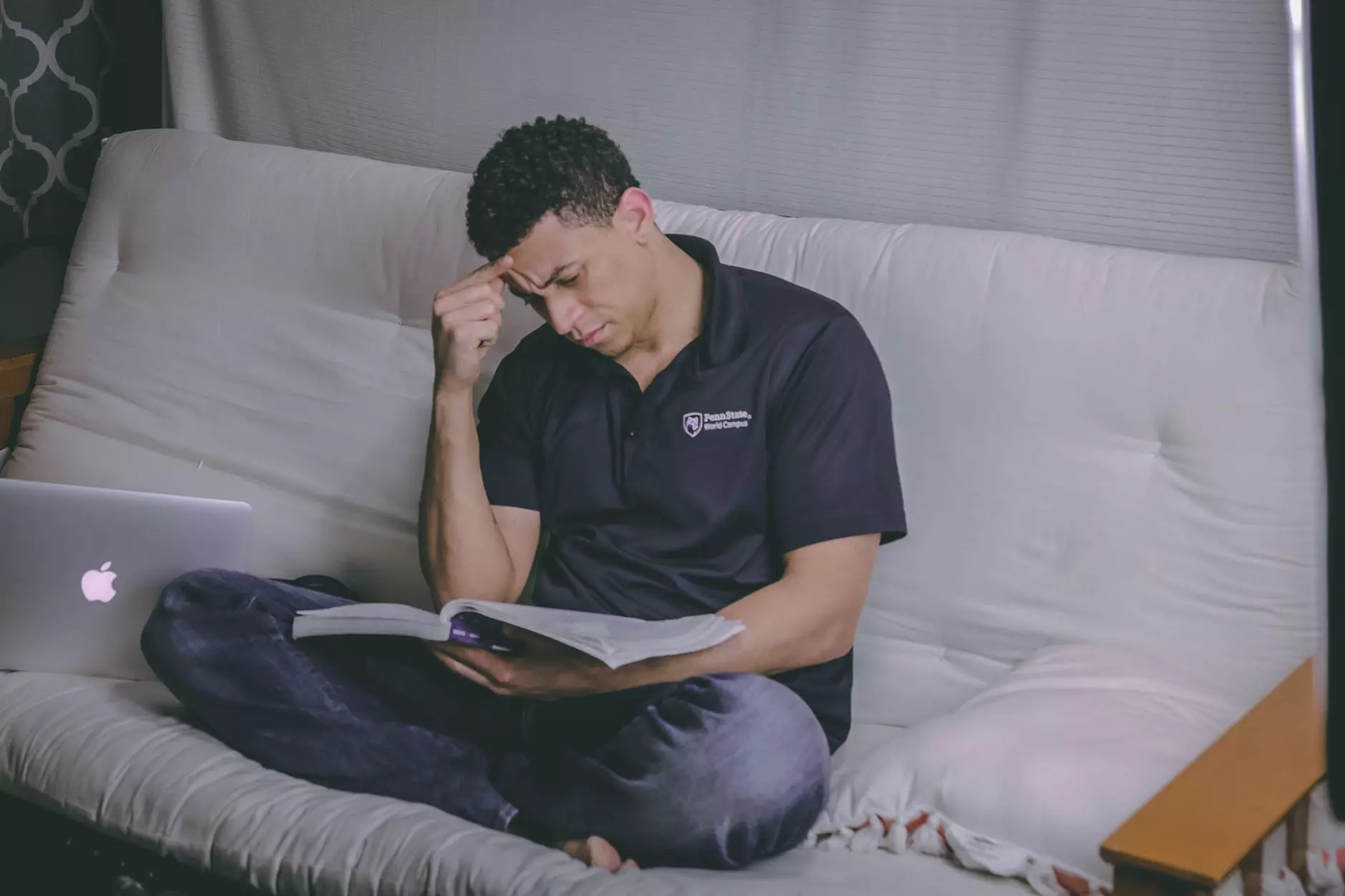Top 9 Educational Resources for Students with Dyslexia and Dysgraphia
2020-06-03 | By Orcam Staff

Finding the right resources for students with dyslexia and dysgraphia is crucial for their academic success and overall well-being. Dyslexia, a learning disorder characterized by difficulties in reading and language processing, requires specialized support to help students overcome challenges and thrive in educational settings. Fortunately, there are numerous educational websites dedicated to providing valuable tools, strategies, and materials designed specifically for individuals with dyslexia. In this article, we will explore some of the top educational websites that offer a wide range of resources tailored to meet the unique needs of students with dyslexia, empowering them to develop their reading skills and reach their full potential.
Educational websites about dyslexia and reading difficulties provide helpful content for parents and teachers of those with dyslexia. Developing technology and science led us to understand these conditions better. They additionally present us with new methods and techniques to elevate the quality of life for those with dyslexia. Here you can find the best, must-visit educational websites about dyslexia and reading difficulties.
Understanding Dysgraphia - Core Characteristics
Dysgraphia is a specific learning disability that significantly impacts writing abilities. It involves challenges with fine motor skills, leading to difficulties with handwriting, spelling, and organizing thoughts on paper.
Key Characteristics
The primary characteristics of dysgraphia include:
- Inconsistent or illegible handwriting
- Difficulty maintaining grip on a writing instrument
- Trouble organizing and structuring written text
- Frequent spelling errors unrelated to phonetic understanding
Impact on Learning
These characteristics can severely affect educational experiences. Students with dysgraphia may struggle with note-taking, completing written assignments, and performing in standardized tests that require written responses.
Real-Life Examples
For instance, a child with dysgraphia might avoid writing tasks, feel anxious about school assignments, or get frustrated during writing exercises, indicating a need for specialized support.
Identifying Dysgraphia Characteristics
Early Signs
Early signs of dysgraphia in children can include:
- Delayed development of fine motor skills
- Difficulty with drawing or tracing
- Resistance to writing or drawing activities
Diagnosis and Assessment
Diagnosing dysgraphia typically involves a combination of cognitive assessments, writing observations, and educational evaluations to understand the individual's specific challenges.
Differences in Individuals
It's important to recognize that dysgraphia can manifest differently among individuals. The spectrum ranges from mild to severe, and the characteristics can vary widely.
Support Strategies
Effective strategies for supporting individuals with dysgraphia include:
- Providing extra time for writing tasks
- Allowing oral responses instead of written ones
- Using technology aids like speech-to-text software
Dyslexia and Dysgraphia - Understanding the Connection
Defining Dyslexia and Dysgraphia
While dyslexia primarily affects reading skills, dysgraphia impacts writing. Both are learning disabilities but focus on different aspects of language processing.
Co-occurrence of Dyslexia and Dysgraphia
It's not uncommon for individuals to experience both dyslexia and dysgraphia. They may share underlying cognitive challenges, such as difficulties with language processing and memory.
Differentiating Instructional Needs
Educational approaches for dyslexia often focus on reading and phonetic skills, whereas dysgraphia requires a focus on motor skills and writing organization. When both are present, a comprehensive, individualized approach is essential.
Case Studies
For example, a student with both dyslexia and dysgraphia might benefit from a combination of reading support programs, handwriting exercises, and the use of assistive technology to aid in both reading and writing tasks.
What Are the Most Recommended Educational Websites About Dyslexia?
Just as with other health conditions, there are plenty of educational websites about reading difficulties. These websites are increasing the awareness of dyslexia and presenting their findings. The professors and scientists are preparing content for your benefit. Here you can find the most helpful educational websites about dyslexia.
9) National Center of Learning Disabilities
Monthly Followers: 20K+
You will find: Resources and Academic Support

This community has been helping children with learning difficulties such as dyslexia or ADHD for more than 40 years. Every child has the right to get a proper education, and for children with reading difficulties, it is not as easy as others. So, NCLD empowers parents and young adults for equal rights and opportunities.
8) British Dyslexia Association
Monthly Followers: 77K+
You will find: Resources and Helpline

British Dyslexia Association is one of the best organizations that increases the awareness of dyslexia in the world. They are hosting successful dyslexic people to share their tips and experiences with other dyslexic people. You are not alone, and these stories will give you the motivation you are looking for.
7) LD Online
Monthly Followers: 90K+
You will find: Courses and Resources

This website seeks to help children and adults with learning difficulties and ADHD. They present a wide array of questions and answers so you can learn more about this condition. Besides that, you can find educational resources if you are a parent of a child with dyslexia.
6) Dyslexia
Monthly Followers: 97K+
You will find: Lifelong Learning and Resources

Do you suspect your child has dyslexia? Here you can learn dyslexia from A to Z. You can learn the symptoms of dyslexia and how to live with it. This website was established by Ronald Dell Davis to present the Davis method for dyslexic people. Check out this technique!
5) International Dyslexia Association
Monthly Followers: 110K+
You will find: Helpline and Resources

USA-based International Dyslexia Association has more than 11,000 members and operates 44 different branches throughout the USA and Canada. It is an outstanding organization for dyslexic students and adults. Every year from various events, sponsorships, publications, and conferences they raise more than $2 million.
4) This Reading Mama
Monthly Followers: 190K+
You will find: Practical Tips and Resources

This Reading Mama presents many materials for hands-on learning. You can download resources and educational materials for your child with dyslexia. At home, you can help him/her to better understand English words.
3) Reading Rockets
Monthly Followers: 1.3M+
You will find: Practical Tips and Resources

Reading Rockets creates and disseminates free, evidence-based information about reading through three major services: PBS television programs, online services, and professional development opportunities. On their website, you can find more.
2) Edutopia
Monthly Followers: 1.7M+
You will find: Lifelong Learning and Resources

Edutopia is dedicated to transforming K-12 education so that all students can acquire and effectively apply the knowledge, attitudes, and skills necessary to thrive in their studies, careers, and adult lives.
1) Understood
Monthly Followers: 2.4M+
You will find: Practical Tips and Resources

Understood helps families recognize and understand why their child struggles. Additionally, it assists the parents, offering solutions that will be beneficial for them. Their educational website is perfect for parents who have dyslexic children.
Have reading difficulties? Read your book with OrCam Learn!

OrCam Learn is the most innovative reading assistant. Unlike other reading devices, OrCam Learn can scan full pages and can begin reading at any point you choose. This state-of-the-art device does not need WiFi or an internet connection. Additionally, OrCam Learn is one of only 19 products selected as a “Best of Innovation” honoree in CES 2021. This portable reading device will increase your quality of life.
OrCam Learn is designed for people with reading difficulties, learn more now.
National Center of Learning Disabilities
International Dyslexia Association
What is Dyslexia?
Dyslexia is a common learning condition and impacts a person’s reading, writing, and spelling. Even though this is a lifelong condition, there are many opportunities to overcome this. Using some tips and tricks for everyday activities will help increase your quality of life. Besides tips, there are many life-changing assistive devices for dyslexic people. The most important point is, you are not alone, and 15% of people have some kind of reading difficulty.
Why Should You Visit Educational Websites About Dyslexia?
Educational websites for dyslexia and reading difficulties are the primary source for learning about these conditions. Many associations, organizations, and professionals publish new research about dyslexia. Struggling from reading difficulties is very hard, at any point of your life. However, with the correct understanding and preventative methods, it can be overcome. In short, these are the main reasons you should visit educational dyslexia websites:
- Learning new methods for your daily activities
- Getting more inspiration and staying motivated all the time
- Discovering associations for dyslexic people, and joining their events
What are the Educational Websites?
Educational websites are the most trustworthy information sources on the internet. These websites are hosted by associations, universities, or experts on a specific topic. Any person who wants to learn more about a specific topic should visit one of these educational websites. The variety of the topics can be from programming to health-related topics. Just with a few clicks, you can find any educational website to increase your knowledge.
Resources for Students with Dyslexia
Assistive Technology
Assistive technology can greatly benefit students with dyslexia by providing additional support and accommodations. There are various tools and software available specifically designed to aid dyslexic learners. These may include text-to-speech software, speech-to-text applications, dyslexia-friendly fonts, and specialized reading apps. Such assistive technology enables students to access, comprehend, and express information more effectively, enhancing their overall learning experience.
Dyslexia Reading Programs
Dyslexia-specific reading programs offer structured and targeted instruction to address the specific challenges faced by dyslexic students. These programs often incorporate evidence-based practices and multisensory techniques to enhance reading skills. Examples of popular dyslexia reading programs include Orton-Gillingham, Wilson Reading System, and Barton Reading & Spelling System. These programs provide a systematic approach to phonics, decoding, fluency, and reading comprehension, catering to the specific needs of dyslexic learners.
Learning Support Services
Many educational institutions offer learning support services specifically tailored to students with dyslexia. These services may include individualized education plans (IEPs) or 504 plans that outline the necessary accommodations and support. Additionally, schools may provide resource rooms, where students can receive specialized instruction, targeted interventions, or one-on-one tutoring. Collaborating with learning support specialists or dyslexia specialists can greatly benefit dyslexic students in accessing the resources and support they require.
Dyslexia Advocacy Organizations
Dyslexia advocacy organizations are valuable resources for students, parents, and educators seeking information, guidance, and support. These organizations often provide educational materials, webinars, conferences, and community forums where individuals can learn about the latest research, interventions, and strategies. They also advocate for dyslexia awareness and promote policies that ensure appropriate support and accommodations for dyslexic individuals. Examples of such organizations include the International Dyslexia Association (IDA) and Decoding Dyslexia.
Learning Apps and Websites
There is a wide range of learning apps and websites designed to support dyslexic students in their reading and language skills. These platforms often offer interactive exercises, games, and engaging content that help develop phonics, vocabulary, and reading comprehension. Some popular dyslexia-friendly apps and websites include Learning Ally, Nessy, Lexia Core5, and Read&Write. These resources provide accessible and engaging learning opportunities that cater specifically to the needs of dyslexic learners.
Parent and Teacher Support Groups
Parent and teacher support groups can be invaluable resources for understanding and navigating the challenges of dyslexia. These groups provide a platform for sharing experiences, exchanging strategies, and seeking guidance from others who have firsthand knowledge of dyslexia. Such support groups may be found locally, through community organizations or schools, or through online communities and forums. They offer emotional support, practical advice, and a sense of community for parents and educators working with dyslexic students.
Overall, these resources for students with dyslexia provide a range of support, interventions, and information that can greatly enhance their learning journey. By utilizing assistive technology, accessing dyslexia-specific reading programs, leveraging learning support services, connecting with dyslexia advocacy organizations, exploring learning apps and websites, and engaging in support groups, students with dyslexia can thrive academically and develop their unique strengths.
More Stories

Discover the Best 20 Online Havens for Book Lovers | OrCam
2024-05-08 | By Justin Lubomirsky

Best Gift for Blind or Visually Impaired Women. Top Christmas Gift Ideas! - OrCam
2024-03-14 | By OrCam Staff

Dyslexia in Adults: An Advantage, Not a Limitation - OrCam
2024-03-11 | By OrCam Staff

Payment Plan for Your OrCam Device - OrCam
2024-03-07 | By OrCam Staff

Voice-Activated Devices: Revolutionizing Accessibility & Tech | OrCam
Explore the future of voice technology and its impact on daily life. Your journey into a smarter world starts here!
2024-01-30 | By OrCam Staff
.png)
Inclusive Community Guide: Support for the Visually Impaired
Empower the visually impaired with innovative solutions. Learn how your actions can make a meaningful impact.
2024-01-30 | By OrCam Staff



